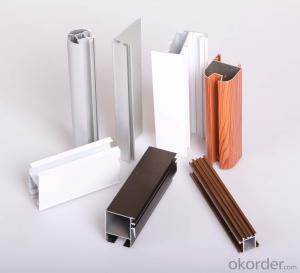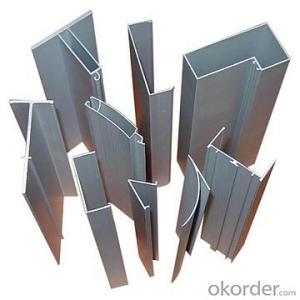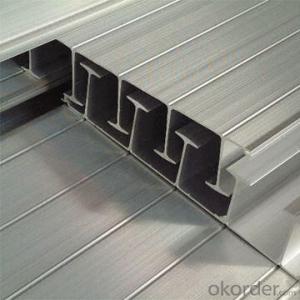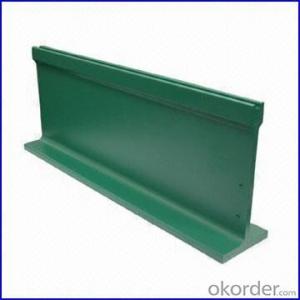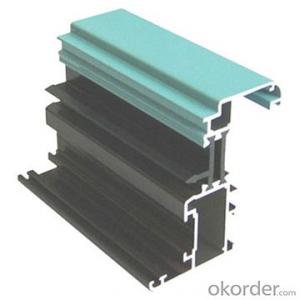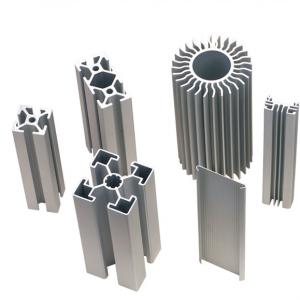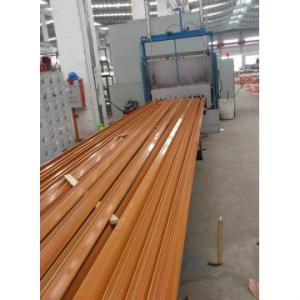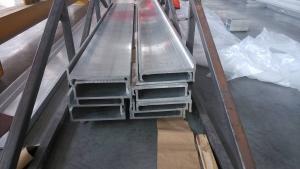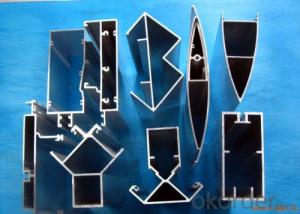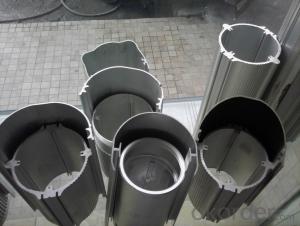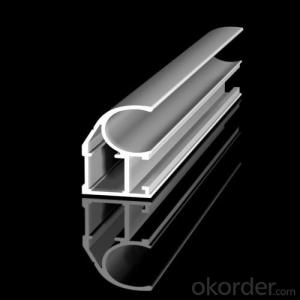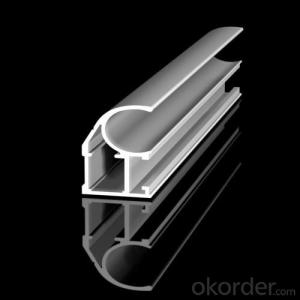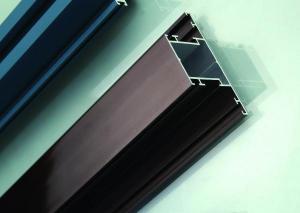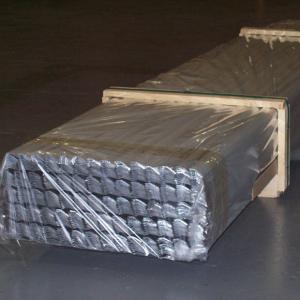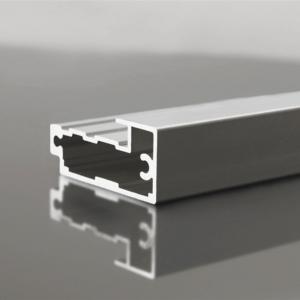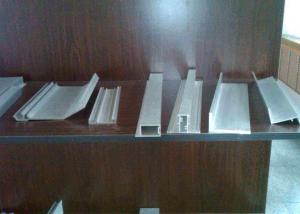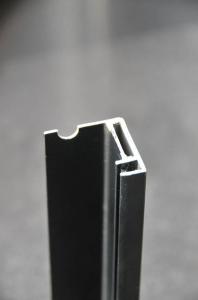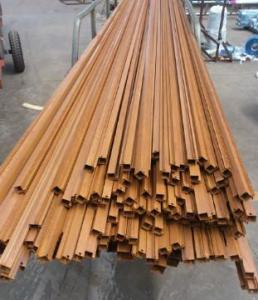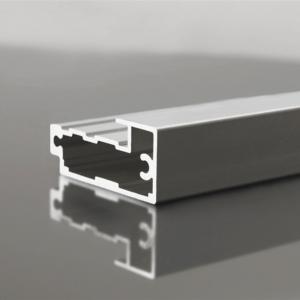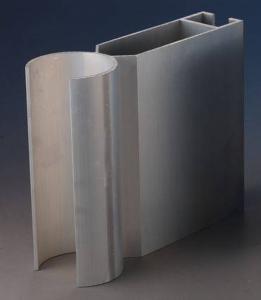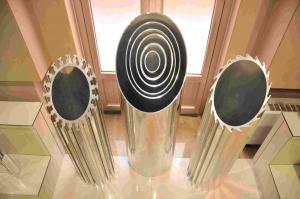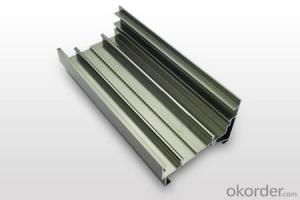alu perfiles for window and doors
- Loading Port:
- China Main Port
- Payment Terms:
- TT OR LC
- Min Order Qty:
- -
- Supply Capability:
- -
OKorder Service Pledge
OKorder Financial Service
You Might Also Like
Aluminium is a relatively soft, durable, lightweight, ductileand malleablemetalwith appearance ranging from silvery to dull gray, depending on the surfaceroughness. It is nonmagnetic and does not easily ignite. A fresh film ofaluminium serves as a good reflector (approximately 92%) of visible lightand an excellent reflector (as much as 98%) of medium and far infraredradiation. The yield strength of pure aluminium is 7–11 MPa,while aluminium alloys have yield strengths ranging from200 MPa to 600 MPa. Aluminium has about one-third the densityand stiffness of steel. It is easily machined,cast, drawn and extruded.
Features:
Material | Alloy 6063,6061,6005or according to customer’s choice |
Temper | T3, T4, T5, T6 |
Surface | Anodize, electrophoresis, powder coating, PVDF coating, wood grain painting, matted, etc. |
Length | Coating 6.5 meters, Anodizing 6.5 meters, Mill finish 5 meters |
Application | Industrial, electrical equipment(TV set, air conditioner, refrigerator, computer), decoration,construction, transportation |
Custom Made | We can package following with customer's request. |
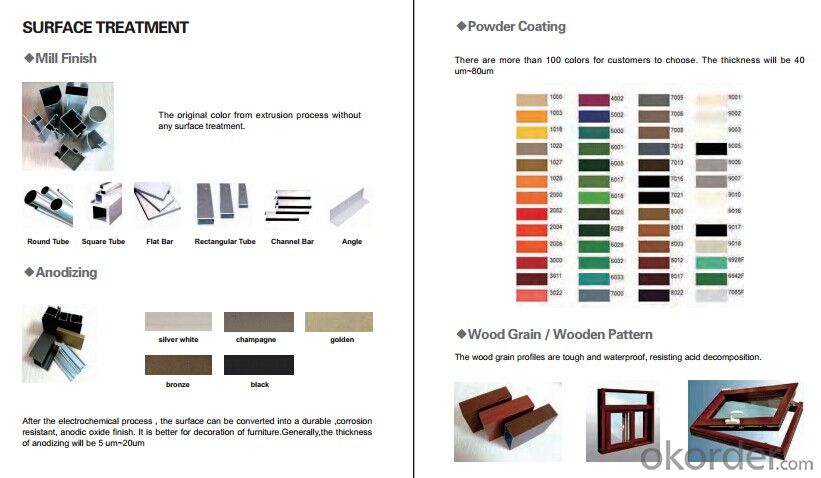
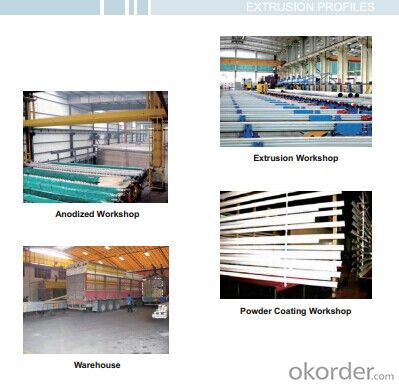
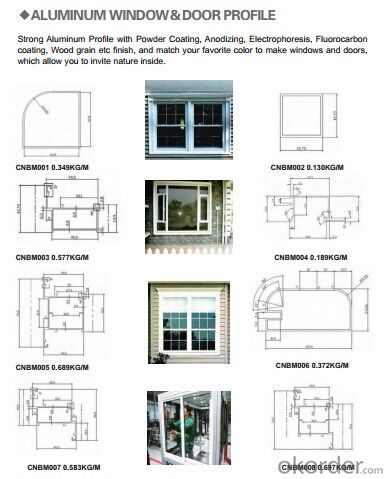
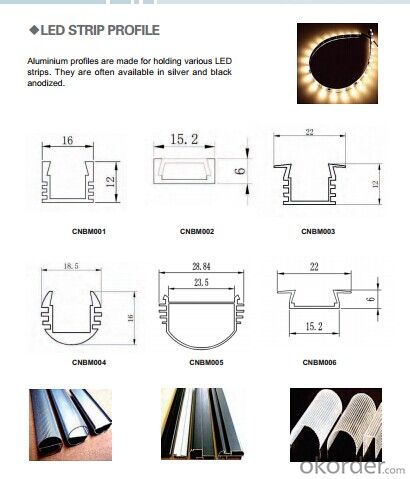
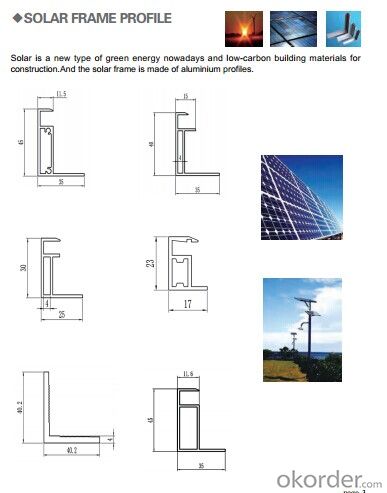
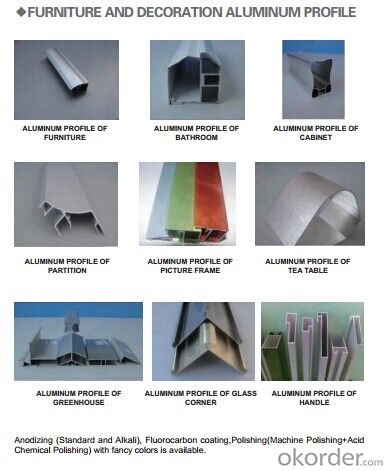
- Q:What are the different surface protection methods for aluminum profiles?
- There are several surface protection methods for aluminum profiles, including anodizing, powder coating, painting, and mechanical finishes. Anodizing is a popular method that creates a protective oxide layer on the surface, providing corrosion resistance and enhancing the appearance. Powder coating involves applying a dry powder onto the profile, which is then cured to create a durable and decorative finish. Painting is another option, where a liquid paint is applied and cured to protect the surface. Mechanical finishes involve processes like brushing or polishing to achieve a desired texture or appearance while still protecting the aluminum profile.
- Q:Can aluminum profiles be used in the construction industry?
- The construction industry can utilize aluminum profiles, which possess qualities such as being lightweight, durable, and resistant to corrosion. These attributes make them suitable for a wide range of construction applications. Aluminum profiles are commonly employed in the production of windows, doors, curtain walls, and structural framing systems. They offer an excellent strength-to-weight ratio, enabling the creation of large and intricate structures without excessive weight. Furthermore, they are easily molded into various shapes and sizes, providing flexibility in design and construction. The thermal conductivity of aluminum profiles is also advantageous, as it allows for efficient insulation and energy conservation. All in all, due to their versatility, durability, and aesthetic appeal, aluminum profiles are a favored choice in the construction industry.
- Q:How do aluminum profiles perform in terms of water resistance?
- Aluminum profiles generally exhibit good water resistance due to their natural properties. The metal itself is corrosion-resistant, which means it does not easily rust or degrade when exposed to water. Additionally, aluminum profiles can be further treated with coatings or anodization processes to enhance their water resistance capabilities. These surface treatments create a protective layer that prevents water from penetrating the metal, reducing the risk of damage or deterioration over time. However, it is important to note that the water resistance of aluminum profiles can vary depending on the specific alloy, surface treatment, and maintenance practices. Regular cleaning and proper sealing of joints can help ensure optimal water resistance performance.
- Q:Will the aluminum profile be deformed at about 100 degrees?
- Of course, you only choose the quality of aluminum, as far as possible to choose the hardness of high bar, 5052, 5056, 6082, 7075 and so on are high strengthAluminium alloy。Our common 6063-T5 material, the door and window material is the material.
- Q:Where is the exact location? TwentyBecause I was doing aluminum sales, want to go to the market!Where is the specific market aluminum sales, as long as there is, I have to go around! Say where it is! For example, what area, what road, how many?! Since I went to Chengdu for the first time, please tell me more about it. Thank you!
- Two days ago in the city to find the north gate, Xinshengda profile market have taken a little more, Sammy, the gold house electrical city only one sell Aluminum Alloy, Wanguan electrical didn't go to see, tailor steel city to ask a security guard said little or no 512, no Aluminum Alloy sold, only 512 of the next street there is a Aluminum Alloy sell (416 opposite the hospital). Today I went to Qingbaijiang Fengxiang profile market. Where is the place where the aluminum alloy merchants gathered, the profiles, accessories, processing?...... Goods are available in all varieties。 But the aluminum doors and windows only home balcony with the majority, profile industry, such as steel rack chassis radiator with basically No. This market sells stainless steel materials, businesses are also more. Bus route Liang Jia lane to Qingbaijiang on the car, told the driver to Fengxiang market under the line, and 6 yuan fare, cheaper! Drive away the State Road 108 to Mi Mou Town, Fengxiang market in 108 State Road next great, far away saw. This is the latest information, 2013-9-12
- Q:How do aluminum profiles perform in terms of thermal conductivity?
- Aluminum profiles are known for their excellent thermal conductivity. Thermal conductivity refers to the ability of a material to transfer heat. Aluminum has a high thermal conductivity value, which means it can efficiently transfer heat from one point to another. This property makes aluminum profiles highly suitable for applications that require heat dissipation or heat transfer, such as in the construction of heat sinks, radiators, or electrical components. Additionally, the high thermal conductivity of aluminum profiles allows for faster and more efficient cooling, making them ideal for applications that involve thermal management.
- Q:Are aluminum profiles suitable for noise barriers?
- Indeed, noise barriers can be effectively constructed using aluminum profiles. The durability, corrosion resistance, and lightweight nature of aluminum make it an ideal material for noise barriers. By either absorbing or reflecting sound waves, aluminum profiles can effectively diminish noise pollution. Moreover, the malleability of aluminum offers numerous design possibilities, rendering it highly adaptable for diverse noise barrier applications. Additionally, aluminum is an environmentally conscious choice as it is both recyclable and sustainable. In summary, aluminum profiles are a viable choice for noise barriers owing to their enduring nature, efficacy in noise reduction, and design flexibility.
- Q:Are aluminum profiles weather-resistant?
- Indeed, aluminum profiles exhibit a commendable resistance to weather conditions in general. Renowned for its ability to resist corrosion and endure diverse climatic circumstances, aluminum distinguishes itself from iron or steel by not succumbing to rust. Consequently, it emerges as an exceptional material for outdoor purposes. Furthermore, aluminum profiles can undergo treatments with diverse coatings or finishes to bolster their resilience against inclement weather. These coatings offer supplementary safeguarding against detrimental UV rays, moisture, and other environmental elements. All in all, aluminum profiles prove themselves as robust and trustworthy selections for outdoor utilization, rendering them well-suited for an extensive array of industries and applications.
- Q:What are the electrical insulation properties of aluminum profiles?
- Aluminum profiles have relatively low electrical insulation properties compared to other materials commonly used in electrical applications, such as plastics or ceramics. This is because aluminum is a highly conductive material, meaning it readily allows the flow of electrical current. However, aluminum profiles can still be used effectively in electrical applications if proper precautions are taken to ensure insulation. For example, aluminum profiles can be anodized or coated with insulating materials such as epoxy or polyurethane to improve their insulation properties. These coatings create a barrier between the aluminum and the electrical current, reducing the risk of electrical conductivity. Additionally, aluminum profiles can be used in conjunction with other insulating materials to provide the desired level of electrical insulation. For example, when used in electrical wiring systems, aluminum conductors are often combined with insulating materials such as PVC or cross-linked polyethylene to provide reliable insulation. It is important to note that while aluminum profiles may have lower electrical insulation properties compared to other materials, they do offer other desirable characteristics such as high strength, lightweight, and corrosion resistance. Therefore, careful consideration should be given to the specific application and electrical requirements before selecting aluminum profiles as an electrical insulation material.
- Q:Are aluminum profiles suitable for fencing and gates?
- Yes, aluminum profiles are suitable for fencing and gates. Aluminum is a durable and lightweight material that offers excellent resistance to rust and corrosion. It can withstand harsh weather conditions and requires minimal maintenance. Additionally, aluminum profiles can be easily customized and designed to suit various fencing and gate styles while providing a sleek and modern appearance.
1. Manufacturer Overview |
|
|---|---|
| Location | |
| Year Established | |
| Annual Output Value | |
| Main Markets | |
| Company Certifications | |
2. Manufacturer Certificates |
|
|---|---|
| a) Certification Name | |
| Range | |
| Reference | |
| Validity Period | |
3. Manufacturer Capability |
|
|---|---|
| a)Trade Capacity | |
| Nearest Port | |
| Export Percentage | |
| No.of Employees in Trade Department | |
| Language Spoken: | |
| b)Factory Information | |
| Factory Size: | |
| No. of Production Lines | |
| Contract Manufacturing | |
| Product Price Range | |
Send your message to us
alu perfiles for window and doors
- Loading Port:
- China Main Port
- Payment Terms:
- TT OR LC
- Min Order Qty:
- -
- Supply Capability:
- -
OKorder Service Pledge
OKorder Financial Service
Similar products
New products
Hot products
Related keywords
